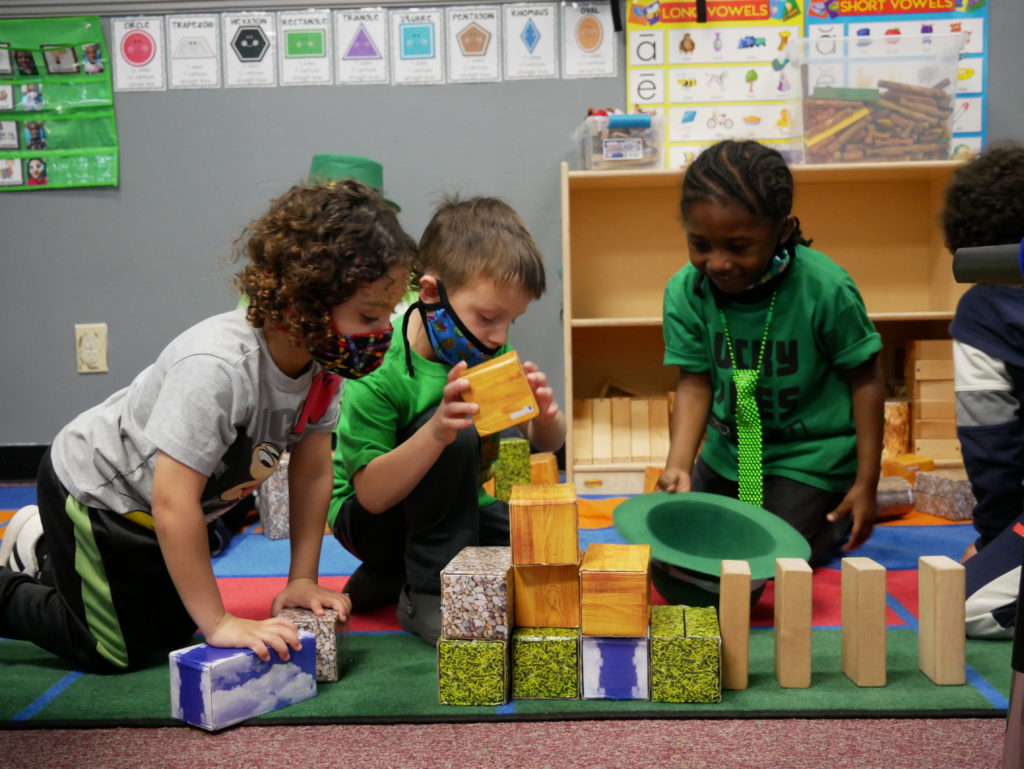'Everyone had hoped we were coming to a better place.'
Early Bird readers, hello again. Newcomers, welcome! If you were forwarded this email, you can sign up here to receive it every two weeks, and join our conversation on issues facing North Carolina’s young children and those who support them. If you’re already a subscriber, please help us reach more people by sharing this with your friends and co-workers interested in early childhood education.

A new survey, released at the end of July, has documented the financial struggles many child care providers, educators, and families experienced during the first year of the pandemic. As we head into an uncertain fall, new challenges are arising for providers who can’t find qualified teachers.
In April, one in five child care providers who responded to the survey said they were at risk of closing permanently in the following six months without more financial support. Thirty-one percent of respondents reported revenue losses greater than $45,000, citing drops in enrollment and higher costs to meet pandemic safety standards.
“We wanted to have the survey data to complement what we knew anecdotally,” said Sheila Hoyle, executive director of Southwestern Child Development. The survey was conducted by Zogby Analytics, commissioned by the NC Child Care Resource and Referral Council, and funded by the Blue Cross and Blue Shield of North Carolina Foundation.
Enrollment is almost back to pre-pandemic levels, especially for children whose parents rely on the subsidy program to afford care. But many providers are struggling to fill job openings, sometimes having to cut classrooms.
“This is probably a little bit before we were feeling the full brunt of the staffing crisis,” said Janet Singerman, president and CEO of Child Care Resources Inc. “That has exacerbated the challenges of remaining open and economically viable during COVID. And as enrollment was recovering … the variant presumably will continue that challenge rather than lessen that challenge when everyone had hoped we were coming to a better place.”
What challenges are you facing in serving students or accessing early education for your children? Reply to this email and let me know. As school starts back, I’m also continuing to look for stories about what this year looks like for the early elementary grades. Let me know what you’re seeing in your classrooms and communities.
Thank you for all you do for our youngest learners.
Early Bird reads: What we’re writing
Survey documents child care providers’ pandemic struggles; experts say they’re not over
“We are definitely not out of this pandemic,” said Marcia Whitley, president and CEO of Verner Center for Early Learning, which has three centers in Buncombe County and a home-based Early Head Start program. “In fact, we really have not substantially changed in any way all of the different health and safety protocols that we put in place.”
How summer reading programs could help to accelerate learning this year
A shifting culture in reading instruction and sharp increases in summer school attendance across the state could mean students are better prepared for learning recovery and acceleration — provided that their summer reading camps fit certain parameters.
Here’s what the research says about the impact of summer learning, and a look at some of those summer programs.
Your take, for goodness sake: EdNC perspectives
Perspective | Child care workforce compensation: A key component for economic recovery
“When wages within community businesses rise, child care programs can’t compete,” writes Marsha Basloe, president of the Child Care Services Association, and Amy Cubbage, president of the North Carolina Partnership for Children.
“They simply can’t pay more because to do so, they would have to charge parents more. Yet, parents already struggle with affording child care. It’s just one reason why public education is just that, paid for by the public.”
In other early learning news: What I’m reading
Parents report declines in academic, social-emotional skills - From The Hechinger Report
Parents and pediatricians are growing impatient for a Covid-19 vaccine for younger children - From CNN
Senate Takes Next Step in Advancing Biden’s Historic, $3.5T Agenda for Education, Families - From The 74 Million
Return to Work? Not With Child Care Still in Limbo, Some Parents Say. - From The New York Times
Illinois is expelling fewer preschoolers. But programs still exclude young children. - From Chalkbeat
The Kindergarten Exodus - From The New York Times
Research & Resources: Let's talk kindergarten entry assessments
A new report from the Learning Policy Institute examines 38 states’ kindergarten entry assessments (KEAs) and provides recommendations to strengthen the tool during an especially critical time in assessing young children’s needs during the pandemic.
For more on North Carolina’s KEA and changes in 2020, go here.
High-quality KEAs, the report says, should:
- Be formative and measure child development domains in culturally responsive ways.
- Be fair for all children and practical for teachers. A traditional seated assessment that takes a long time is not developmentally appropriate. Professional development on how to administer the test and use the results is key.
- Yield results that are valid for all children being assessed. The report points out that the assessment components should be backed by rigorous research that includes children from diverse backgrounds.
To strengthen kindergarten assessments, states and districts should:
- Choose high-quality assessments that fulfill the above characteristics.
- Make sure assessments inform instruction and build family engagement. Teachers should receive ongoing training on how to use the results and should share the information with families to plan together.
- Use assessment data to strengthen systems and not to evaluate individual programs or restrict children’s access to kindergarten.
- Support continuous improvement by including teachers in assessment development, fund regional staff to help with implementation, and continually evaluate its helpfulness for educators and students.
Sign up for Early Bird, our newsletter on all things early childhood.

